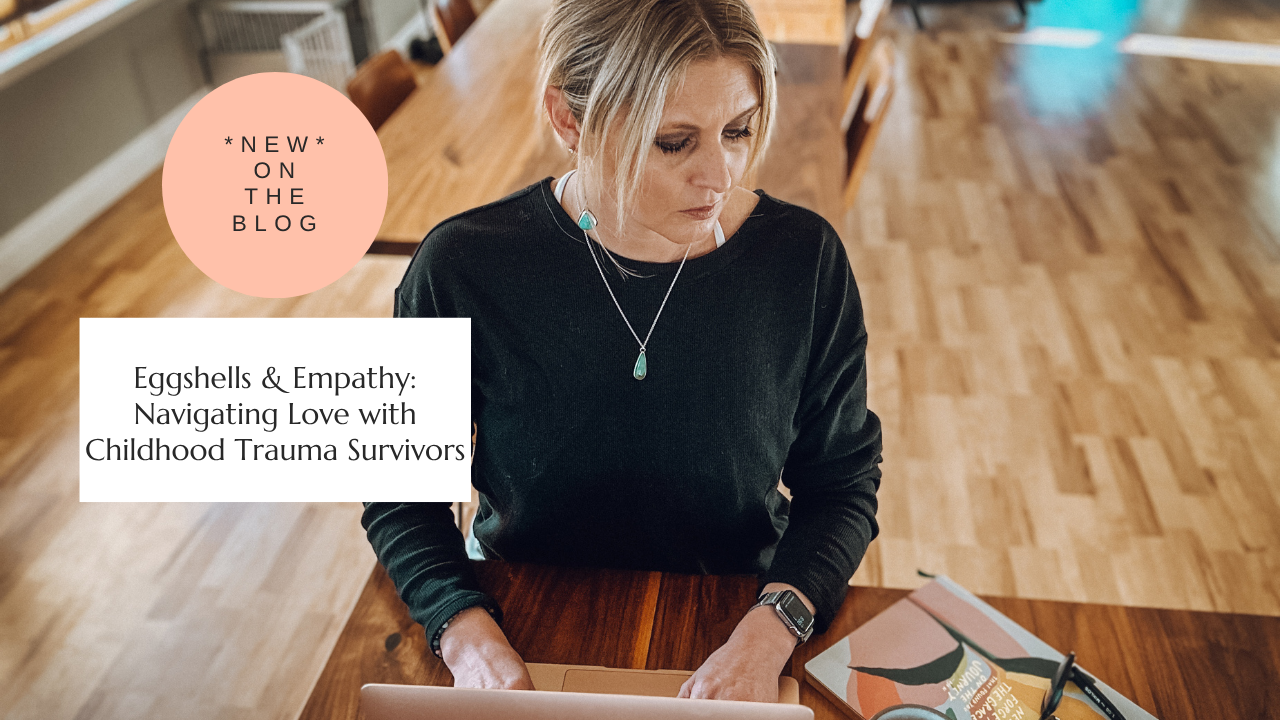
Imagine waking up every day with a mix of hope and trepidation. You're hoping to face the day with renewed energy but are overshadowed by a looming uncertainty. Life feels like a series of tiptoed steps, where one misstep might unleash chaos. This is the tale many share, living with a childhood trauma survivor. It's an exhausting dance of unpredictability, making you feel perpetually out of control.
I've been in your shoes.
Not long after marrying my husband, I started recognizing the signs. The persistent insomnia, the compulsive need for environmental control, heightened irritability, and periods of prolonged withdrawal. It took our relationship hitting its lowest point for my husband to confide his dark past to me—a heart-wrenching history of childhood abuse.
But acknowledging the trauma was only the beginning. As someone trying to support a survivor, I was overwhelmed by a sense of lost control, like constantly walking on shifting sands. It's a burden no one should bear alone.
Reclaiming Lost Control
So, where do we start? How do we ensure our well-being while supporting our traumatized loved ones?
Boundaries
Think of setting boundaries like planting a garden. When you plant flowers, you often use garden edging or borders to protect them, giving each plant its space to grow without interference. The same goes for personal boundaries: they help protect our emotional and mental well-being, clearly defining what's acceptable and what isn't.
Healthy boundaries might be a challenge to establish, but they're pivotal in ensuring both safety and control. It's a blend of understanding, compassion, and creating a shared safe space. It's never easy, but trust me, it's worth every effort.

A tip from personal experience: when confronted with disappointment or frustration due to your boundaries, approach the situation with empathy. Understand their feelings, but remember it's not your job to mend their disappointment. For instance, "Yes, I'm sorry for not communicating better when this happened before, but I need to ask you not to schedule anything over my yoga class. That time is crucial for me."
Five Day Challenge Announcement!
I'm thrilled to announce a Five-Day Challenge dedicated to those navigating relationships with childhood trauma survivors. Whether you're struggling or suspecting unresolved trauma affecting your relationship, this challenge is your springboard towards a more stable, secure, and harmonious life. Click here to learn more.
Conclusion: The power to change is always in your hands!
Supporting a loved one with a history of trauma requires patience, understanding, and strong personal boundaries. Yet, as challenging as the journey may be, it can lead to deeper connections, profound growth, and a shared path to healing.
Questions to Reflect Upon:
- What boundaries can I set today to protect my well-being and maintain harmony in my relationship?
- How can I communicate my needs without placing blame or igniting conflict?
- What steps can I take to further educate myself on the effects of childhood trauma and its impact on relationships?
- How am I taking care of my emotional and mental well-being while supporting my loved one?
- What resources or support groups can I tap into to ensure I'm not navigating this journey alone?
Before concluding, I must address an all-too-common feeling: exhaustion. The relentless sensation of being stuck in a daily survival mode. If you resonate with this sentiment, my next newsletter is tailor-made for you. Dive deep into strategies and solutions, ensuring you're not merely surviving but thriving. Sign up Now!
Stay connected with news and updates!
Join our mailing list to receive the latest news and updates from our team.
Don't worry, your information will not be shared.
We hate SPAM. We will never sell your information, for any reason.

